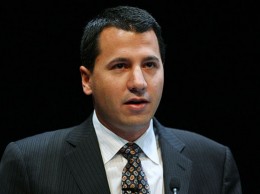Op/ed: Planning can help protect your life, business and family when disaster strikes
By Jean-Luc Bourdon on July 6, 2012
With fires threatening major cities in Colorado this summer and with dry conditions across the Tri-Counties, it’s time for business owners and managers to reassess their preparedness for disaster.
The purpose of planning is to strategically pursue best-case scenarios while preventing worst-case scenarios. Which matters most? According to Warren Buffett, “you only have to do a very few things right in your life, so long as you don’t do too many things wrong.” Logically, we should emphasize avoiding major setbacks. But one of the most overlooked aspects of personal finance is disaster preparedness. In disaster-prone Southern California, the high-risk and frequency of natural disasters makes it all the more important.
Many disasters, such as earthquakes, and emergencies cannot be prevented, yet much can be done to reduce the likelihood of injury, loss of life and property.
Five important parts of life to protect are your income, your property, your health and life, your records and your loved ones. Here’s a closer look:
• Protect your income. If you were unable to work or if your employer or business were to temporarily shut down, what would you and your family live on? Evaluate your sources of income under various scenarios and seek a replacement source.
For example, understand what medical and disability benefits your employer offers. Understand also your disability benefits from Social Security (see socialsecurity.gov).
Have an emergency fund to cover your living expenses for a comfortable period of time. Evaluate how much disability insurance you need. Manage your debt to be comfortable with your loan payments under a variety of scenarios.
• Protect your property. Start with the basics: Install and check smoke alarms, carbon monoxide detectors, fire extinguishers and disaster supplies kit. Practice shutting off your utilities. Bolt tall furniture to wall studs. Use straps to secure your water heater. Have the main frame of your home anchored to its foundation.
For more mitigation tips relevant to the specific disasters you might face, whether those are fires, floods or tsunamis, visit www.fema.gov, www.redcross.org and ready.gov.
Review your insurance coverage and make sure it would allow you to financially recover should disaster strike. Make sure you understand your policy and insure what you cannot afford to lose. Earthquake and flood insurance information is available at earthquakeauthority.com and floodsmart.gov, respectively.
• Protect your health and life. Understand what your health insurance covers and the process to receive benefits. For example, can you go to any hospital to receive your full benefit? Evaluate how much life insurance you need to provide financial security to your loved ones if you lost your life.
Life insurance contracts range from simple to wildly complex. Seek objective financial advice to determine what best suits your needs. You also need legal documents in place to designate, instruct and empower the person(s) who will make health and/or financial decisions for you if you can no longer do it yourself.
• Protect your records. Technology makes it easy to scan, store and backup important documents. However, it also raises security concerns. Seek safe — that means encrypted — electronic storage. This in turn raises password concerns: Have a backup plan to access accounts and documents if you cannot remember your passwords, are unconscious or lose your life. Original records — birth, death, marriage certificates, passports, etc. — can be protected in a safety deposit box at a bank or in a home safe. Make sure your records are accessible when needed. For example, provide your health directives to the person(s) you designate to carry them out, your physician and emergency contacts. Carry your emergency contacts’ information in your wallet or purse. Make and secure an inventory your belongings (see www.knowyourstuff.org).
• Protect your loved ones. Estate planning documents address how you would like what you own to be distributed. They also include your health-care wishes and who should care for your children and pets. Those documents should not only be in place, they should be current. Make sure your beneficiary designations (for IRAs, 401ks, insurance policies for example) are current as well.
Buffett also said: “Only when the tide goes out do you discover who’s been swimming naked.” So, diligently cover your personal finances when life seems normal in order to prepare for the worst while working to achieve the best. Additional financial preparedness resources are available at www.sbmoney.org, a website I created.
• Jean-Luc Bourdon is a CPA, personal financial specialist and principal with BrightPath Wealth Planning LLC in Santa Barbara and Camarillo. He writes a column for CPA Insider as a wealth management expert. His website is www.brightpathwealth.com.












